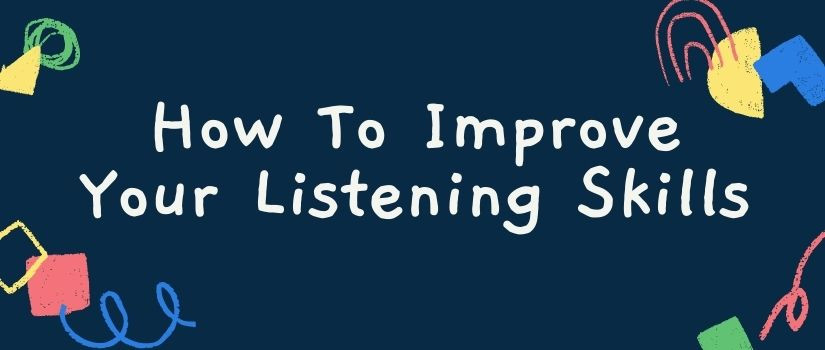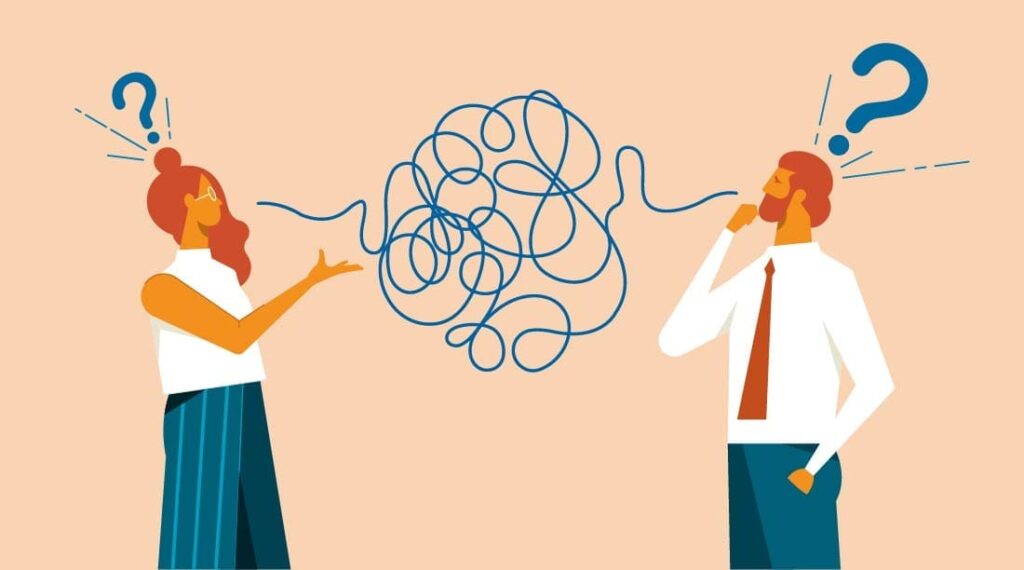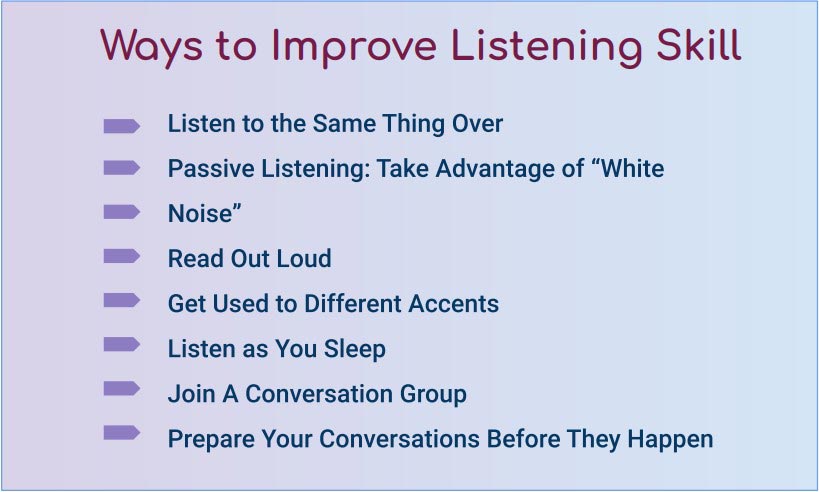Listening Skills: How to Improve It

Listening skills affect every aspect of our lives. Improve your work and personal life by learning how to listen better. Improving your listening skills can enhance your ability to understand and interact effectively with others. Strong communication skills are a valued trait in every industry and listening skills are an essential part of effective communication. It can be beneficial to assess and strengthen your listening skills in professional situations and beyond.
What is Listening Skills?
Table of Contents
Toggle
Listening skills are an essential part of good communication. When you are an attentive listener, you can begin to improve relationships, make decisions more effectively and reach agreements with others quickly.
It includes active listening techniques such as maintaining eye contact, nodding, paraphrasing, and asking clarifying questions to ensure a thorough grasp of the message. By honing listening skills, individuals can improve their relationships, enhance problem-solving abilities, and foster a more empathetic and respectful communication environment.
Why are listening skills important?

Listening Skills plays a pivotal role in personal relationships, professional environments, and educational settings. Firstly, good listening skills promote clearer communication by ensuring that messages are accurately received and understood. This reduces misunderstandings and conflicts, fostering stronger relationships and trust.
Listening is a skill that many of us take for granted. People frequently hear what is being said, but hearing is not the same as listening. To listen, we must make a conscious effort to not just hear but also absorb, digest, and understand what others are saying.
In professional contexts, strong listening abilities are vital for leadership, teamwork, and customer service. They enable employees to follow instructions accurately, collaborate effectively, and empathize with colleagues and clients. Additionally, active listening can enhance problem-solving capabilities by allowing individuals to gather comprehensive information and perspectives before making decisions.
Ways to improve your listening skills

Improving your listening skills involves both adopting specific techniques and cultivating a mindset conducive to effective listening. It can be beneficial to evaluate your current listening skills to determine areas for improvement. There are several ways to enhance your listening Skills:
1) Maintain Eye Contact:
Show the speaker that you are engaged and attentive by making regular eye contact. This demonstrates interest and encourages the speaker to continue. When you are listening to someone talk, you should avoid looking out a window, texting or scrolling through your phone, or scanning a computer screen.
Limit any unnecessary distractions, provide the speaker with your undivided attention and make an effort to look at them. This provides them with a nonverbal cue that you are interested in what they are saying, which encourages them to continue expressing themselves.
2) Avoid Interrupting:
Avoid interrupting, it’s important to cultivate patience and active listening skills. Focus on fully understanding the speaker’s message before formulating your response. Maintain awareness of your own speaking tendencies and practice restraint, allowing the speaker to express themselves completely. Use nonverbal cues, such as nodding or brief verbal acknowledgments, to signal your engagement without interrupting.
Interrupting sends the wrong message to the speaker. It may suggest that what you have to say is more important, that you don’t care about what they are saying or that the conversation is a competition. It is also important to refrain from offering solutions. Most often people just want you to listen.
3) Ask Clarifying Questions:
Asking clarifying questions helps to keep the conversation on topic. You only want to ask questions that pertain to your understanding rather than ask a question about something that is not related to the main idea the speaker is trying to get across.
By asking clarifying questions, you demonstrate active listening, show respect for the speaker’s viewpoints, and enhance mutual understanding in conversations. When you ask clarifying questions without interrupting, it shows that you are listening, paying attention and willing to discuss things further. If something is unclear or ambiguous, don’t hesitate to ask questions for clarification. This shows your interest in understanding fully.
4) Empathize with the speaker:
Empathizing with the speaker is a key aspect of effective communication and building meaningful connections. It involves understanding and acknowledging the speaker’s emotions, perspectives, and experiences. For instance, if their face conveys sadness or joy then your facial expressions and words should also convey similar emotions. Empathizing with the speaker takes concentration and expends energy, but it allows for open communication and establishes relationships.
Empathy helps create a supportive and compassionate atmosphere where individuals feel heard, understood, and valued. It fosters trust and strengthens relationships by demonstrating that you care about the speaker’s well-being and are willing to engage with their feelings and perspectives in a respectful manner.
5) Pay attention to nonverbal cues:
Paying attention to nonverbal cues is essential for understanding communication beyond spoken words. Nonverbal cues include facial expressions, body posture, gestures, eye contact, and tone of voice. These cues often convey emotions, attitudes, and intentions more accurately than words alone.
It helps you to make inferences based on what a person means when they are talking to you. You can learn a great deal about someone through their body language and tone of voice when they are communicating with you. It is easy to detect boredom, enthusiasm or irritation on someone’s face when they talk depending on their eyes, mouth and position of their shoulders.
6) Provide the speaker with feedback:
Ask others for feedback on your listening skills to gain different perspectives and insights. Your feedback can be verbal and nonverbal. You can use verbal feedback by saying things like, “I understand that must be difficult,” or “OK.” You can use nonverbal cues such as nodding your head and using appropriate facial expressions.
The goal is to send signals to the speaker so they know that you are actively listening. In a situation where someone is giving you tasks, make sure to repeat the task list back to the speaker so they know you understand what to do. Writing down what they say also shows attentiveness.
7) Practice listening:
You can practice listening by being aware of what you do when someone is talking to you. It requires focusing not only on the words spoken but also on the speaker’s tone, emotions, and body language. By maintaining eye contact, nodding to show understanding, and paraphrasing what the speaker says, you can demonstrate attentiveness and ensure clarity.
Avoiding interruptions and asking thoughtful questions for clarification or to delve deeper into the topic also enhances your listening skills. Regularly practicing these techniques in various conversations helps build stronger relationships and fosters better understanding in both personal and professional interactions. Try listening to no more than four-minute clips and replay them to see how much information you can retain.
What makes a good listener?
A good listener possesses several key qualities that contribute to effective communication and understanding. A good listener does more than merely hear conversations. The most skilled listeners offer their complete attention, carefully process what they hear and respond empathetically.
They also tend to be open-minded as they listen. As you develop your listening skills, you might find that you can participate more fully in conversations and offer more effective feedback.
